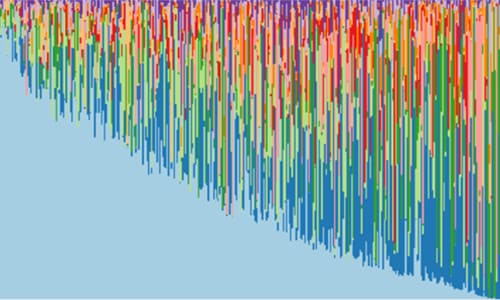The SEPAGES Cohort
in a nutshell

The goal of the couple-child cohort SEPAGES (Assessment of Air Pollution exposure during Pregnancy and Effect on Health) is to characterize the exposure of pregnant women and children to environmental contaminants and to study how these contaminants affect the health of pregnant women, fetuses, and children.
The SEPAGES cohort was established in the Grenoble region (France) and is coordinated by a research team specializing in environmental epidemiology from Inserm (National Institute of Health and Medical Research) and Grenoble Alpes University. This research project involves numerous partners, including the Grenoble Alpes University Hospital, its four maternity wards, ultrasound clinics in the Grenoble metropolitan area, and numerous research teams.
Read more
This study focusses primarily on the impact of air pollution, of chemical contaminants such as nonpersistent endocrine disruptors (i.e., compounds of the phenol family such as bisphenol A and its substitutes, parabens, triclosan, benzophenone, etc.), and of phthalates on the health of pregnant women and their children. To address these issues, the study includes 484 couple-child trios starting in the first months of pregnancy and follows them for several years.
One of the originalities of the SEPAGES study is the intensive monitoring of volunteers to record their exposure to air and chemical pollution (volunteers are monitored twice during pregnancy and several times in the first years of the child’s life). The monitoring is done by using individualized assessment instruments (e.g., GPS, accelerometers, and dosimeters for air pollution) and by creating a vast biological biobank.
SEPAGES volunteers
in a few figures
Mode of delivery:
with epidural or other local anesthesia
with no anesthesia
with general anesthesia
Who participated in
the SEPAGES study?
-

Pregnant women
484
-

Partners
410
-

Birth
470 children
-

Two months
457 children
-

1 year
434 children
-

2 years
407 children
-

3 years
419 children
-

5 years
389 children
The cohort: A central tool for public health

The science of epidemiology studies the health status of a population to quantify the frequency of a health event and to determine its causes. Epidemiological studies serve to monitor the health of a population in its environment. Some studies, such as this one, can be carried out with a cohort, that is, with a group of people whose health status and risk factors are monitored regularly over time (typically several years or decades). Such cohorts form veritable public health research platforms.
For the SEPAGES cohort, all data collected are used to improve our knowledge of how the environment affects the health of pregnant women and their children. The results of the study may also serve to implement preventive measures among the population and to inform policymakers and influence regulations regarding air pollution and the use of certain chemical pollutants in consumer products.










